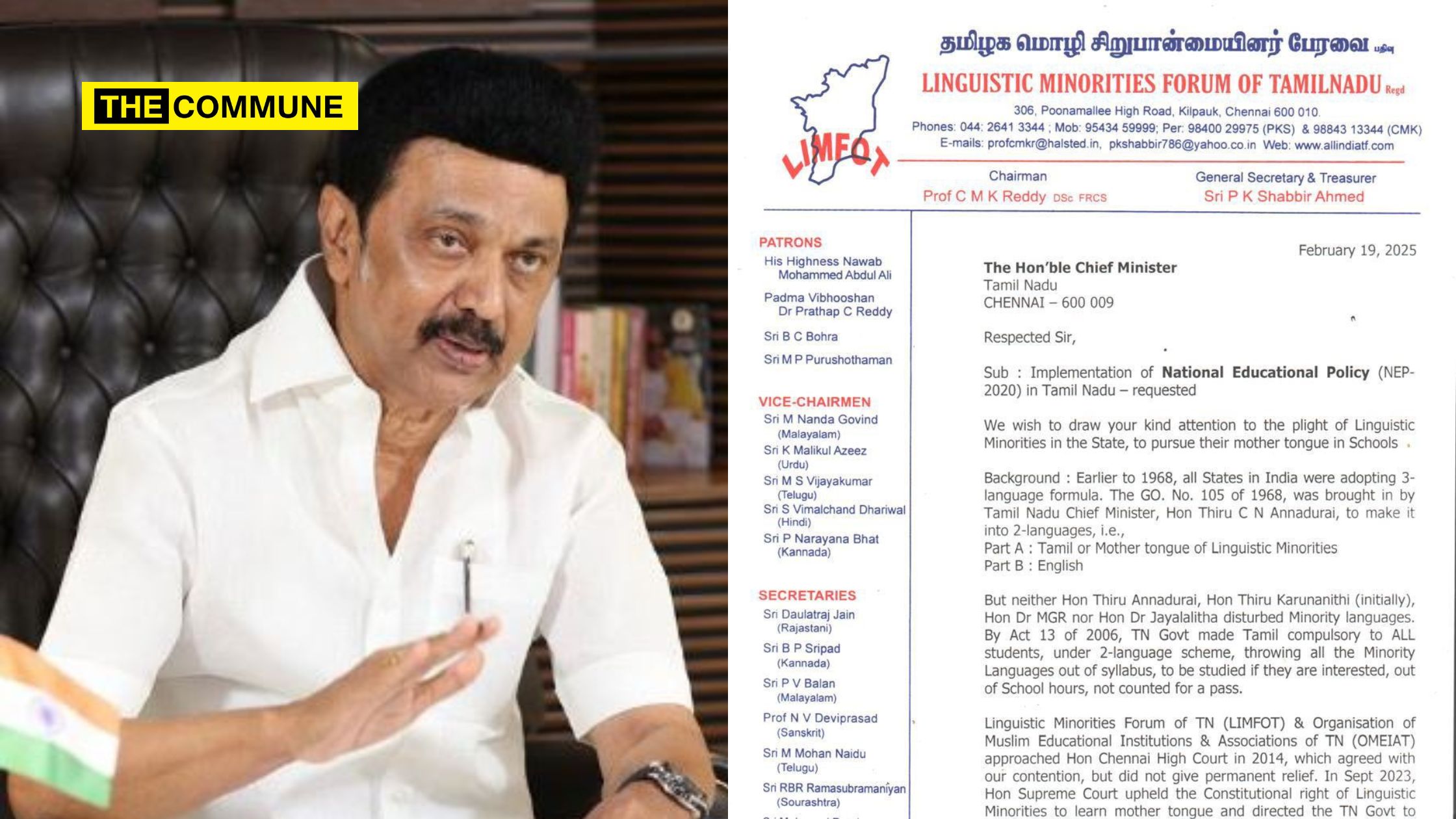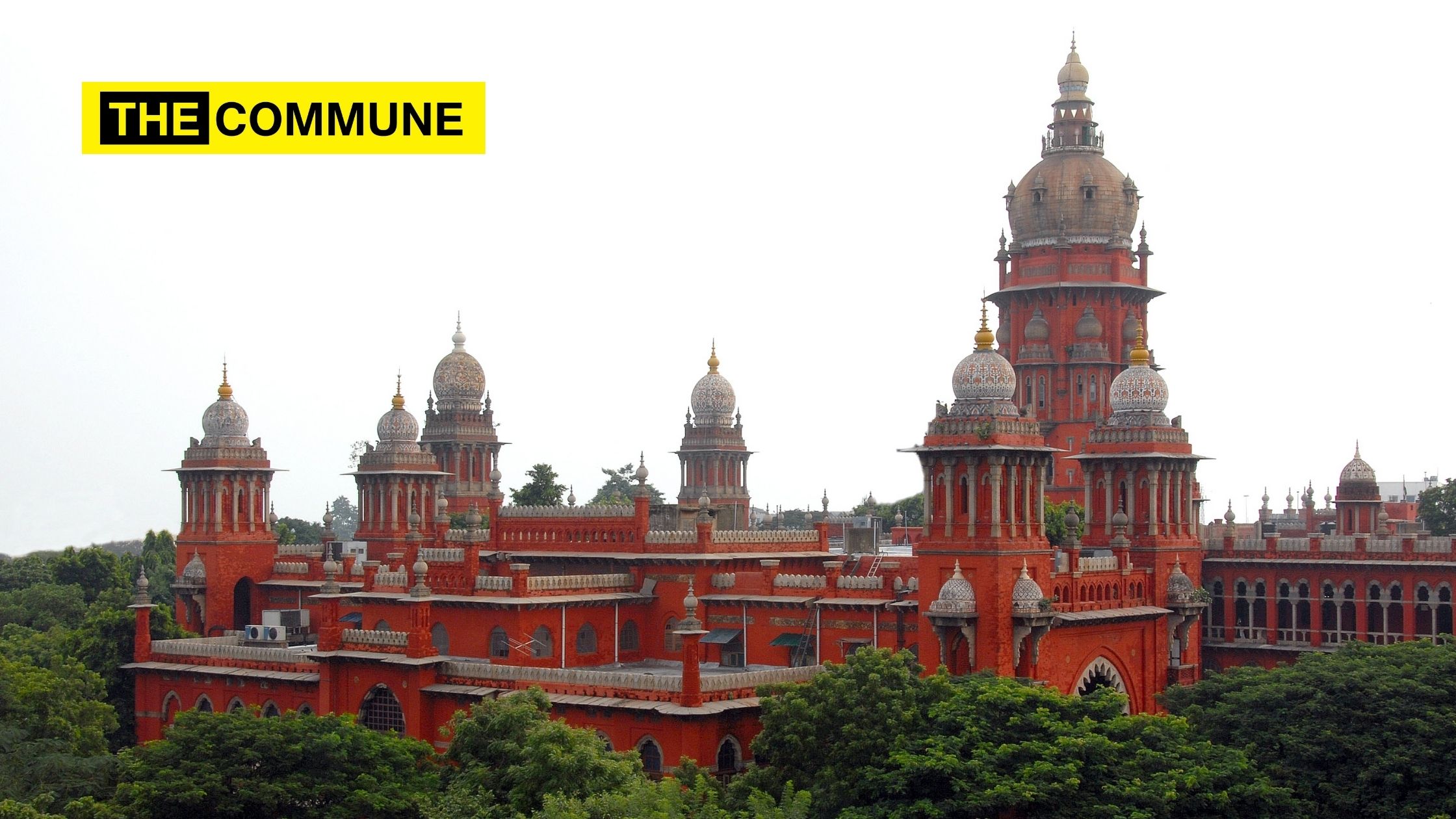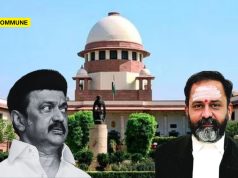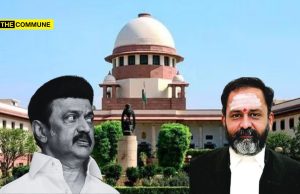
The Linguistic Minorities Forum has appealed to Chief Minister MK Stalin to ensure the proper implementation of the National Educational Policy (NEP-2020) in Tamil Nadu, in order to safeguard the fundamental right of over 2 crore people to learn their mother tongue and preserve this crucial aspect of the state’s cultural heritage. The forum represents speakers of 13 different languages in Tamil Nadu.
In a statement issued on behalf of the forum emphasized the challenges faced by linguistic minorities in the state when it comes to pursuing their mother tongue in schools. Historically, prior to 1968, all states in India followed the three-language formula. However, Tamil Nadu introduced the two-language policy through GO No. 105 of 1968 under Chief Minister Thiru CN Annadurai. Under this policy, Part A was Tamil or the mother tongue of linguistic minorities, and Part B was English. Importantly, neither Chief Minister Annadurai nor later leaders such as Thiru Karunanidhi, Dr. MGR, or Dr. Jayalalithaa made any changes to the inclusion of minority languages. In 2006, the Tamil Nadu government made Tamil compulsory for all students under the two-language scheme, excluding minority languages from the syllabus. These languages were only taught outside school hours and were not counted toward passing grades. In 2014, the Linguistic Minorities Forum of Tamil Nadu (LIMFOT) and the Organisation of Muslim Educational Institutions and Associations of Tamil Nadu (OMEIAT) approached the Chennai High Court. While the court agreed with their arguments, it did not provide permanent relief. However, in September 2023, the Supreme Court upheld the constitutional right of linguistic minorities to learn their mother tongue and directed the Tamil Nadu government to include minority languages as compulsory subjects in the school syllabus, along with minimum passing marks, just as is required for Tamil and English.
Tamil Nadu has the largest number of linguistic minorities in India, with 13 minority languages such as Telugu, Urdu, Kannada, Malayalam, Sourashtra, Marathi, Rajasthani, Arabic, Sanskrit, and Hindi, accounting for about 40% of the state’s population. According to the Supreme Court’s directions, students from these linguistic minorities would study three languages. However, schools in Tamil Nadu that follow the CBSE syllabus, including those run by politicians, adhere to the three-language scheme. This raises questions about the consistency of the two-language formula. Essentially, students from low- and middle-income families attending government or government-aided schools are not allowed to learn a third language, even if their parents wish to provide their children with this opportunity. Meanwhile, students in private schools with CBSE syllabi have the privilege of learning a third language of their choice, in addition to Tamil and English.
The National Education Policy of 2020 does not mandate Hindi, Sanskrit, or any other specific language as compulsory. It only states that every state should adopt a three-language policy, with at least two of the languages being Indian languages, alongside English. The policy also clearly states that no language should be imposed. It is our understanding that Union Minister Dharmendra Pradhan’s statement referred to other states that have agreed to adopt the three-language system in their schools. The policy includes several progressive measures, and we are confident that its implementation will benefit our students. Of course, the state is free to reject any provisions that are deemed unsuitable for Tamil Nadu.
There have been multiple Supreme Court rulings affirming that the medium of instruction should be the choice of parents, and that states do not have the right to impose a particular language against their will. If a language is not even taught in schools, how can it be considered for use as a medium of instruction for other subjects? Tamil Nadu leaders justifiably want Tamil students in other parts of India to be able to study their mother tongue, but the linguistic minorities in Tamil Nadu are being denied this right in their own state’s schools.
In line with the provisions of the Constitution and the Supreme Court’s ruling, we urge Chief Minister MK Stalin to allow students to learn any language they wish (in addition to Tamil), without hindrance, and to promote harmony with their Tamil brothers and sisters. The linguistic minorities love the Tamil language and culture and have never been opposed to learning Tamil. Our only request is that our mother tongue be included as a compulsory subject in the school syllabus.
TN Linguistic Minorities Forum urges NEP implementation! LIMFOT appeals to CM @mkstalin to adopt the National Education Policy, citing constitutional rights and benefits for linguistic minorities. #NEP #TamilNadu #EducationReform
@PMOIndia @dpradhanbjp @annamalai_k… pic.twitter.com/0TdqRRhtHW
— Prof CMK REDDY DSc FRCS 🇮🇳 (@ProfCmkr) February 19, 2025
Subscribe to our channels on Telegram, WhatsApp, and Instagram and get the best stories of the day delivered to you personally.




